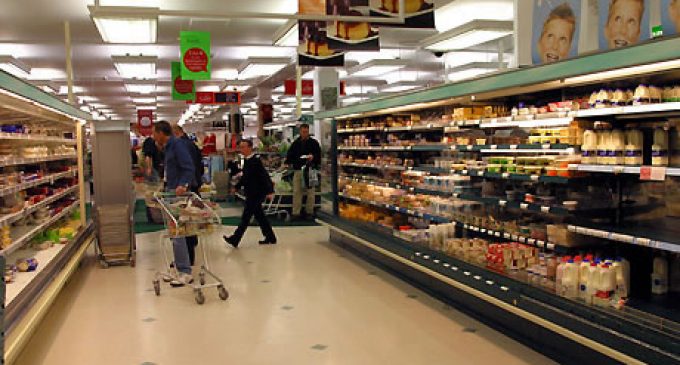Food shortages could be only days away, warn MPs

The UK is “never more than a few day days away from a significant food shortage” and consumers should eat less meat, an influential group of MPs has warned.
The warning came from MPs serving the International Development Committee (IDC), chaired by Sir Malcolm Bruce. “There is no room for complacency about food security over the coming decades if UK consumers are to enjoy stable supplies and reasonable food prices,” he said.
Bruce added: “With the UK never more than a few days away from a significant food shortage, UK consumers should also be encouraged over time to reduce how often they eat meat.”
Greater emphasis should be placed on more sustainable extensive systems of meat production – such as pasture-fed cattle – rather than on intensive grain-fed livestock units, he said.
The House of Commons IDC report on Food Security recommended a number of measures that, it was claimed, could have “a significant impact on global food security and directly benefit UK consumers”.
‘Directly benefit UK consumers’
It highlighted the potential for the government to launch a national consumer campaign to reduce domestic food waste.
Another recommendation was national targets to curb food waste within the UK food production and retail sectors, with penalties for companies that fail to meet these targets.
The MPs also acknowledged that agriculturally-produced biofuels were driving up food prices and making them more volatile. EU targets requiring 10% of transport energy to be drawn from renewable sources by 2020 were likely to cause dramatic food price increases, they warned.
They urged the government to revise its domestic Renewable Transport Fuel Obligation to specifically exclude agriculturally-produced biofuels and called on UK ministers to push for similar reform of the EU target.
‘Over-simplified the problem of meat production’
Professor Richard Tiffin, director of the Centre for Food Security at the University of Reading, welcomed the report but worried that it over-simplified the problem of meat production.
“While the aim of the report is to take a global focus, it is perhaps guilty of oversimplifying the issue of meat production and coming to locally-centred, rather than global conclusions,” said Tiffin.
“The reality is that this area is complex and not well understood at the moment. It is irrefutable that the global demand for meat will grow as populations in developing countries become richer. At a local level, it might be sensible for us to reduce meat consumption, and the reality is that price increases will probably lead us to do this voluntarily.”
But, at a global level, it was more important to consider how the inevitable increase in demand can be met and the implications for human health, said Tiffin.
While he agreed with the need to find more sustainable livestock systems, it was not necessarily true that extensive pasture-based systems were more sustainable, he added.
“For example, there is evidence to suggest that more intensive feeding reduces the considerable emissions of greenhouse gases caused by livestock. The role played by livestock in providing a route out of poverty for some of the poorest farmers should also not be overlooked.”


































